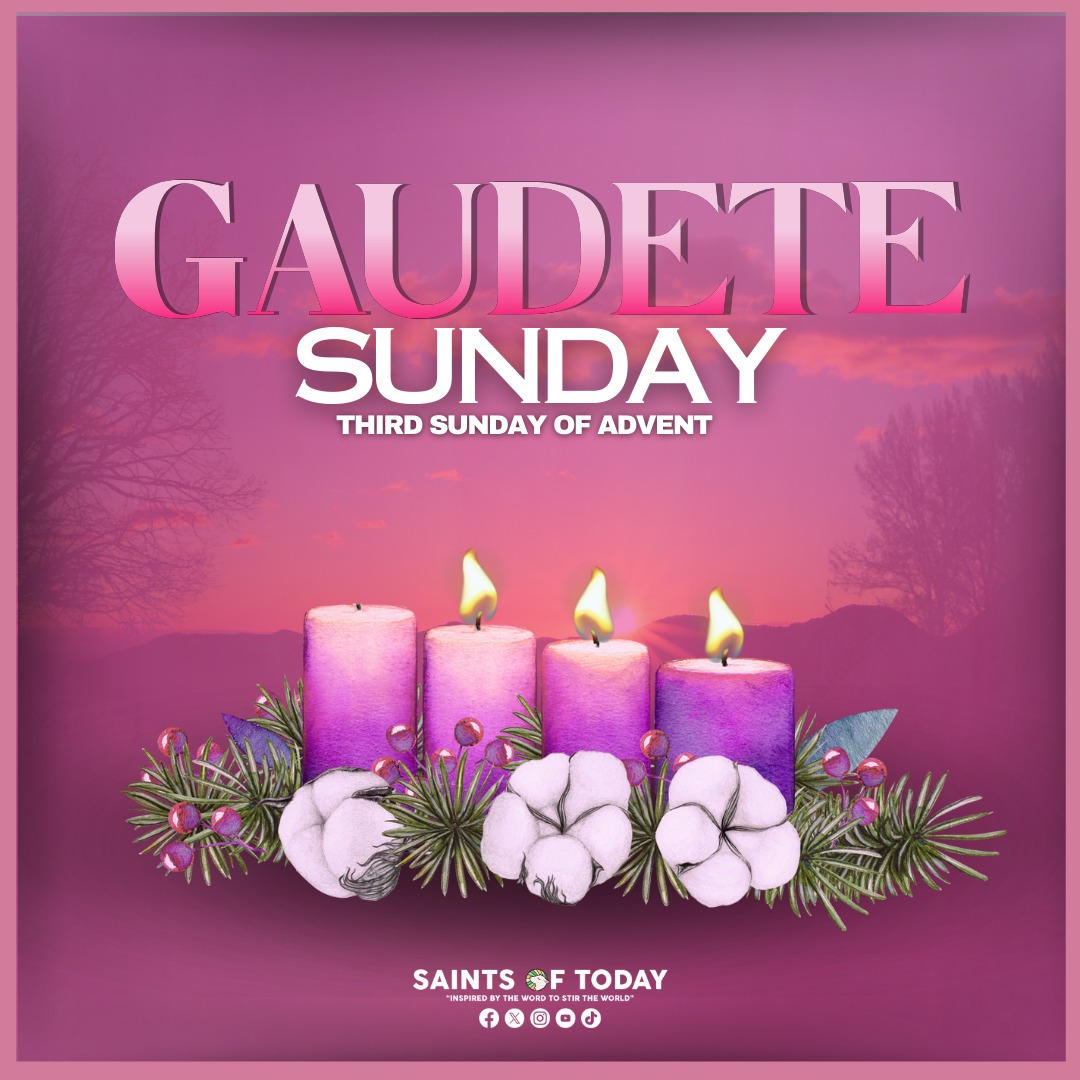
Gaudete Sunday!
Gaudete Sunday is the third Sunday of Advent, and its name comes from the Latin word "Gaudete," meaning "Rejoice!" This Sunday is also known as "Rose Sunday" due to the traditional liturgical color of rose or pink, which symbolizes joy and celebration.
On Gaudete Sunday, the Church encourages us to rejoice and celebrate the nearness of Christ's birth. It's a moment to pause from our Advent preparations and reflect on the joy that comes with the season.
Some traditions associated with Gaudete Sunday include:
1. Wearing rose-colored vestments and decorations
2. Lighting the rose candle on the Advent wreath
3. Singing joyful hymns and chants
4. Reflecting on Scripture readings that emphasize joy and rejoicing (e.g., Philippians 4:4-5, Isaiah 35:1-6a)
Gaudete Sunday serves as a reminder that Advent is not just a time of preparation, but also a time of joy and anticipation for the birth of our Savior, Jesus Christ. Gaudete Sunday is a counterpart to Laetare Sunday, and provides a similar break about midway through a season which is otherwise of a penitential character, and signifies the nearness of the Lord's coming.
The spirit of the liturgy throughout Advent is one of expectation and preparation for the feast of Christmas as well as for the second coming of Christ, and the penitential exercises suitable to that spirit are thus, on Gaudete Sunday suspended, as it were, for a while, in order to symbolize that joy and gladness in the promised Redemption.
While the theme of Advent is a focus on the coming of Jesus in three ways: His first, his present, and his final Advent, the readings for Gaudete Sunday deal with rejoicing in the Lord – Christian joy – as well as the mission of John the Baptist and his connection with Advent. The theologian Thomas Aquinas described the difference between joy and happiness. Happiness is the final end of man, eternal contemplation of God, which is an act of the intellect. Joy, however, is itself not a virtue, but is an effect of the virtue of charity ("love"), which is full if its object is eternal and the greatest, i.e. God. Joy admits no sorrow for it is not an act of the sensitive faculties, e.g. enjoying food is a natural joy for Thomas, but supernatural joy which is spoken of on Gaudete Sunday and in the Gospels is an act of the intellectual appetite known as the will.
In his 2014 Gaudete Sunday homily, Pope Francis said that Gaudete Sunday is known as the "Sunday of joy", and that instead of fretting about "all they still haven't" done to prepare for Christmas, people should "think of all the good things life has given you." As the scriptures put it in Ps. 16:11, in the presence of the Lord, there is fullness of Joy, we must continue to seek this presence of the Lord in all and wherever we find ourselves so that come rain come sunshine we may experience great joy that nothing on earth can steal from us.



Leave a Comment